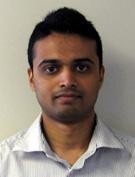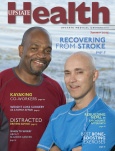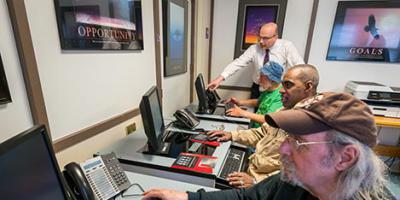Cellphone-assisted diagnosis saved a newborn, guided a career
Rahul Dudhani, MD, remembers when he was new to Syracuse and had a chance – but influential – encounter in June 2012 at Café Kubal.

Rahul Dudhani, MD
Samaritan Medical Center in Watertown had contacted Smith for his expertise because a newborn baby was in cardiac distress, and there was no pediatric cardiologist on hand. Smith was trying to view the echocardiogram and highly detailed images of the newborn‘s heart, but his new cellphone did not immediately connect to the café‘s wireless network.
Dudhani helped him. Moments later, the young physician received his first lesson in cardiac pathology from Smith, a member of Upstate‘s faculty, and a man who would become a mentor.
Examining the echocardiogram and images of the newborn‘s heart, Smith diagnosed a rare and dangerous condition called total anomalous pulmonary venous return. Blood was not flowing properly within the heart‘s chambers. The baby would need surgery, and soon.
“Rahul's help was well timed," Smith said. "This was a rare heart problem, potentially a life or death situation for the baby.”
 The baby was transferred to the neonatal intensive care unit at Crouse Hospital and days later underwent surgery at Upstate University Hospital.
The baby was transferred to the neonatal intensive care unit at Crouse Hospital and days later underwent surgery at Upstate University Hospital.Dudhani began his surgical residency at Upstate a few months after meeting Smith. Today he is a fourth-year resident, specializing in pediatric cardiac surgery.
This article appears in the summer 2015 issue of Upstate Health magazine.

